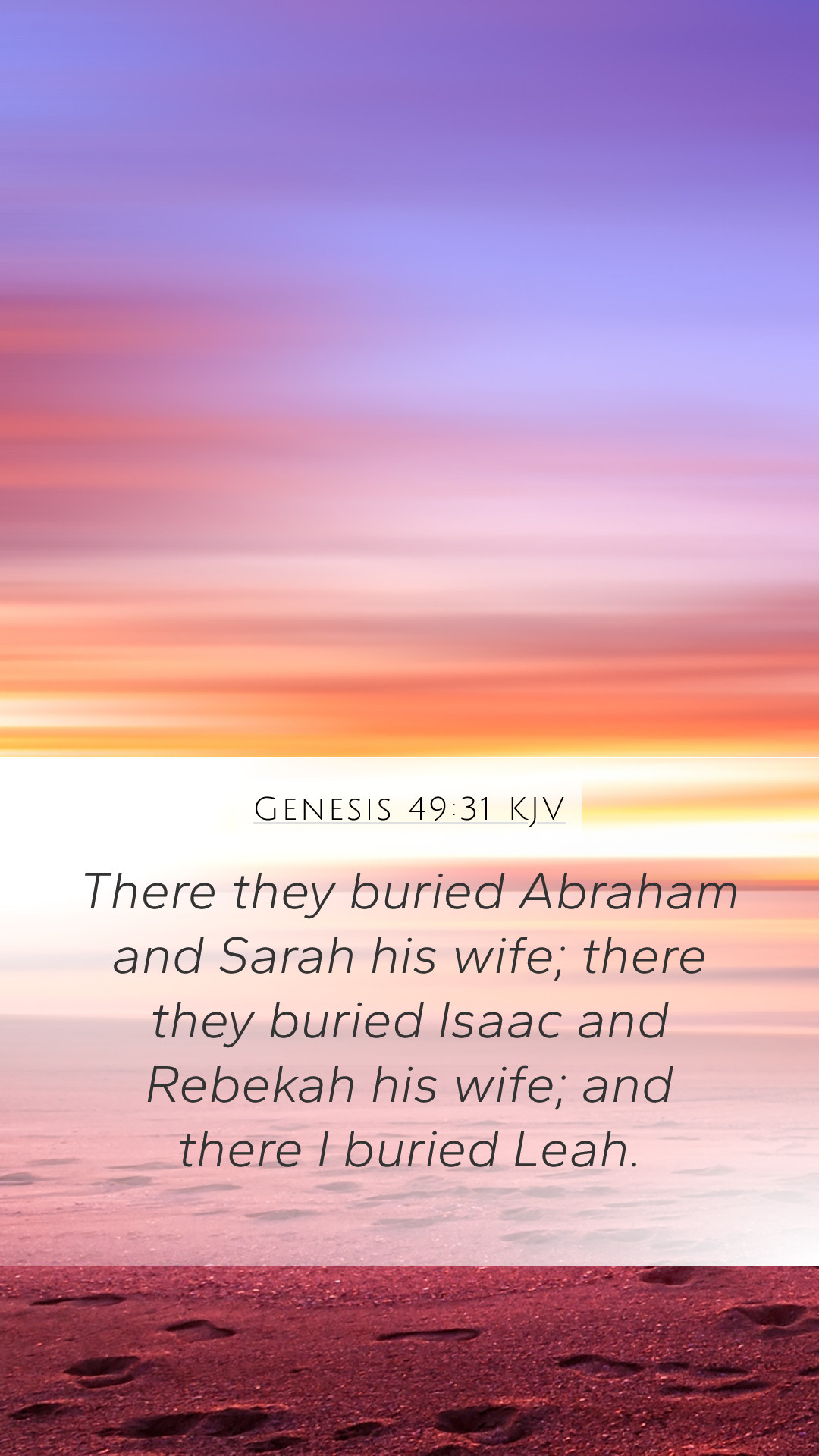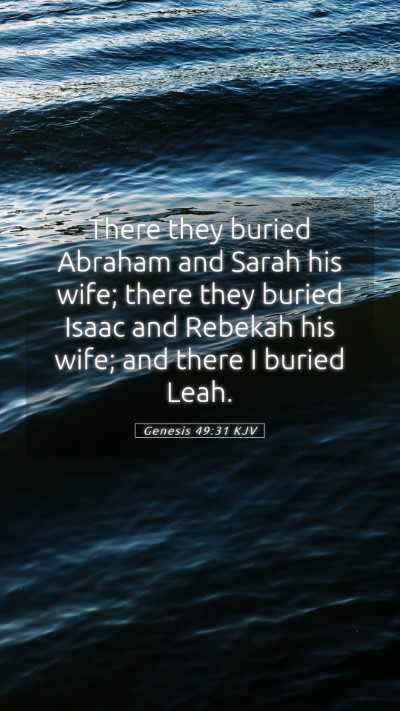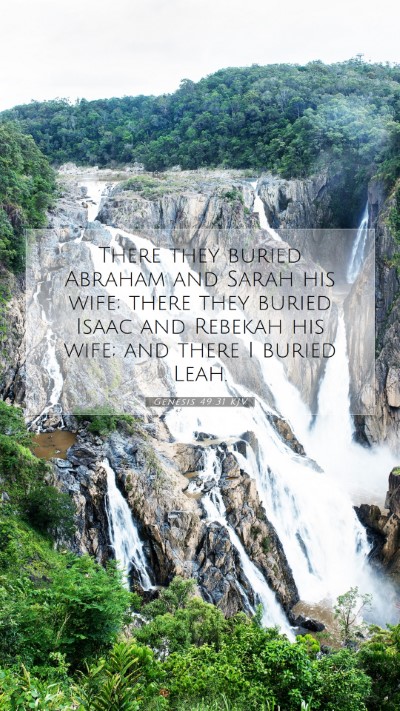Genesis 49:31 states: "And there they buried Abraham and Sarah his wife; there they buried Isaac and Rebecca his wife; and there I buried Leah."
Bible Verse Meanings and Explanations
This verse comes from the farewell blessings of Jacob to his sons, where he recounts the significance of his burial place as it ties back to the patriarchs of Israel.
- Significance of Burial Place: The cave of Machpelah, located in Hebron, is emphasized as the ancestral burial ground for Abraham, Sarah, Isaac, Rebecca, and Leah. This signifies the importance of family heritage and the continuity of God's promises.
- Historical Context: The verse reflects the strong connection to the covenant established with Abraham, wherein God promised to give his descendants the land of Canaan. The burial site represents a fulfillment of this promise.
- Familial Bonds: Jacob mentions the burial of his ancestors, underscoring the importance of family ties and legacy. The mention of Leah signifies the acknowledgment of her as a significant matriarchal figure, despite the dynamics of family relationships.
Bible Verse Interpretations
According to Matthew Henry, this passage illustrates Jacob's desire to be buried in the family grave, which signifies a reunion with his ancestors and a return to the covenantal promise of land. Albert Barnes notes that this event stands as a testament to the lineage of the Israelites and their connection to the land, confirming their rightful place among the patriarchs.
Adam Clarke elaborates further, indicating that Jacob wanted to be buried with Leah as an acknowledgment of her role in his life despite other relationships. This not only reflects Jacob's emotional ties but also serves to illustrate the intertwining of various family narratives within the broader story of Israel.
Understanding Scripture: Theological Insights
Genesis 49:31 highlights the theological significance of burial practices in the Old Testament as a metaphor for hope and resurrection. The act of burial in a specific location tied to God's promises points to the spiritual beliefs surrounding life after death. This verse builds a bridge between the present generations of Israel and their faith in God's everlasting covenant.
Applying Bible Verses to Daily Life
For contemporary believers, the call to honor family heritage and recognize the fulfillment of God's promises can inspire reflection on personal legacies and the importance of familial bonds. As the practice of honoring ancestors is rooted in love and respect, it encourages us to cultivate meaningful relationships that align with scriptural teachings.
Cross References
- Genesis 23:19: The purchase of the cave of Machpelah by Abraham.
- Genesis 25:9: The burial of Abraham by his sons Isaac and Ishmael.
- Genesis 35:29: The death of Isaac and his burial.
Conclusion
Genesis 49:31 serves as a profound reminder of the biblical concept of identity derived from ancestry, covenant relationships, and spiritual heritage. Understanding this passage through a comprehensive Bible verse commentary allows individuals to grasp the deeper implications of faith, family, and God's promises throughout scripture.


